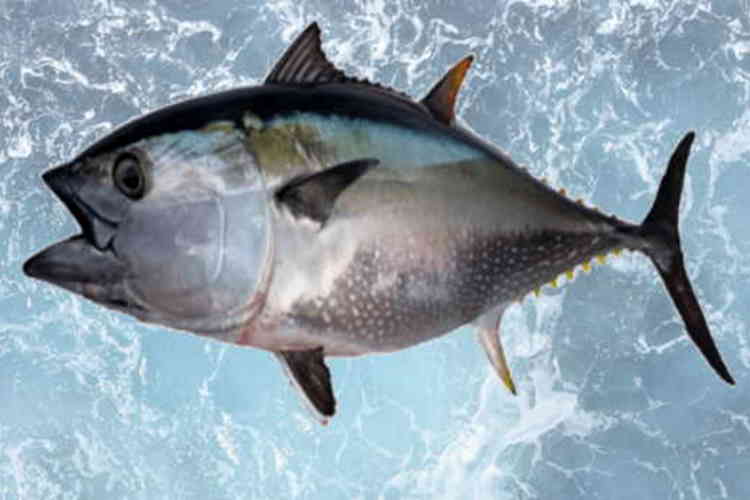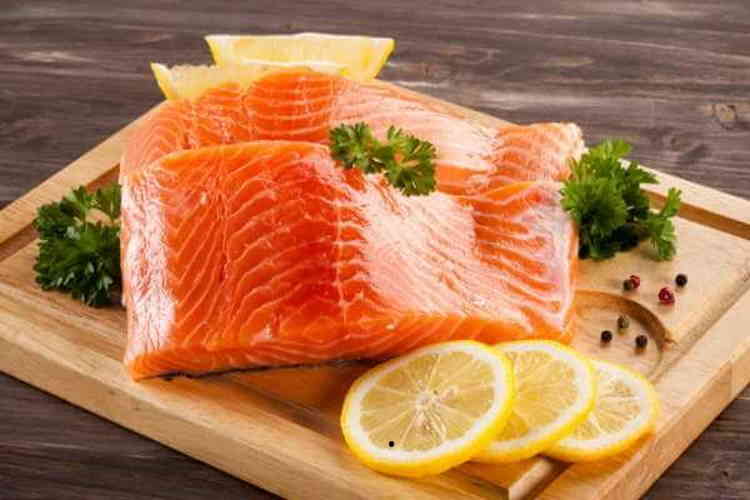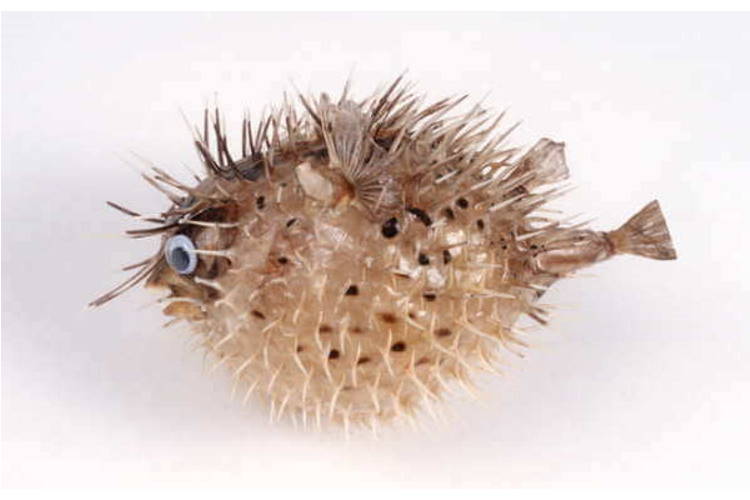- Home
- Shih Tzu diet
- dogs and fish
Can Shih Tzu Eat Fish?
BY MOLLY | EVERYTHINGSHIHTZU.COM
A big part of caring for a Shih Tzu is knowing what to feed them and what not to feed them.
We know that eating fish provides us with many health benefits, including a low-fat, high protein meal with several vitamins and minerals.
It's loaded with omega-3 fatty acids, which help keep our heart and brain in good shape.
So when it comes to our pets, it's only natural that we might assume fish is good for them too. But, can Shih Tzu eat fish?

In general, Shih Tzu can eat fish. Although eating fish can have some benefits for dogs, overeating fish or eating raw fish can cause various issues. These issues can lead to severe health problems for your dog and can result in death in some extreme cases.
When it comes to feeding your Shih Tzu fish, it is essential to be cautious and know which fish to avoid.
3 Types of Fish That Are A Definite NO for Your Shih Tzu
If you decide to feed small amounts of fish to your dog, you need to know which fish are definitely off-limits.
Several types of fish are considered extremely poisonous to dogs, can cause severe illness, and in many cases, can be fatal.
It is also worth mentioning that a dog's response to certain foods is different from other animals' reactions.
For example, just because a cat can eat some canned tuna and seems to be okay, that doesn't automatically mean it's safe for your dog to consume the same food.
Dogs have their own unique body chemistry and digestive systems, so it is crucial to note which fish are not safe specifically for dogs.
Even though fish is a common ingredient seen on dog food labels, that doesn't mean all fish are safe for dogs.
And when it comes to a dog's diet, not all fish are created equal. There are some that are considered poisonous to dogs, and in some cases can cause death.
You may want to avoid feeding your dog the following fish:
- Large Tuna
 Bluefin tuna
Bluefin tunaThere are many different Tuna; however, the larger ones like bluefin and yellowfin contain very high mercury levels, which can lead to mercury poisoning (see more information below) and severe health issues.
- Raw and Smoked Salmon
 Raw Salmon
Raw SalmonSalmon can contain a parasite that leads to a fatal condition known as salmon poisoning (more on this later.)
- Blowfish or Pufferfish

Blowfish, or pufferfish, is extremely toxic. Dogs usually get blowfish toxicity from eating pieces of a found fish, for example, on a beach.
The poison continues to be extremely damaging even after the fish is dead.
Signs of poisoning are weakness, vomiting, and trouble breathing that can lead to death.
Treatment needs to be immediate to have any chance of being effective.
The Pros and Cons of Feeding Shih Tzu Fish
Once you know which fish to absolutely avoid, you can incorporate other types of fish into your Shih Tzu's diet.
In small amounts, fish can have a host of health benefits for your pet, just as they do for people.
However, always make sure the fish is fully cooked and free of any bones before feeding it to your dog.
If you want to incorporate fish into your Shih Tzu's diet, make sure you are first aware of the pros and cons.
Taking the time now to educate yourself on the do's and don'ts of fish for your Shih Tzu can make all the difference in your pet's overall health.
Here are a few pros and cons to consider before adding fish into your dog's diet:
Pros
- Fish are a healthy source of protein.
- Fish are rich in Omega-3s, which can help reduce inflammation.
- Fish can provide an alternative protein source to dogs who have allergies to things like chicken.
- Fish contain low levels of fat.
Cons
- Fish need to be carefully introduced to your dog, for example, a little at a time to test for any intestinal upset.
- Certain types of fish can be toxic or contain high levels of mercury (like tuna and swordfish).
- Certain prepared fish may contain different seasonings, such as garlic, that are unsafe for dogs.
- Fish contain many small bones, so it might be difficult to ensure that all bones have been removed. These small bones can lodge in different areas of your dog's intestinal tract, throat, or stomach and cause complications.
- Fish that are raw or improperly cooked can contain bacteria, such as salmonella or E. coli, that can be passed on to your dog and make him sick.
Overall, the best thing to do is to consult with your dog's veterinarian before feeding any fish to your pet.
Always make sure the fish is cooked well and not heavily oiled or seasoned.
Dogs should not eat fish the way it is prepared for humans. Too much oil and seasonings can cause a whole other set of issues.
What Can Happen To Dogs That Eat Too Much Fish?
In some instances, when a dog eats too much fish, it might just result in an upset stomach.
However, there are a few situations where too much of a good thing can cause some serious medical issues.
Here are a few of the issues that dogs can potentially get from eating fish:
Salmon Poisoning (eating too much raw salmon)
If the salmon is infected with particular parasites, it can cause salmon poisoning.
Dogs are the only species that can be affected by this condition. If caught in time, it can be treated. Otherwise, the dog can die within 14 days.
Symptoms include vomiting, diarrhea, swollen lymph nodes, weakness, and dehydration.
Thiamine Deficiency
Thiamine is a B vitamin and is essential for a dog's optimal health. If it is deficient, a dog can experience decreased appetite, weight loss, and GI issues.
Suppose your dog eats large amounts of raw fish. This can cause thiamine deficiency because the fish contains a particular enzyme that destroys thiamine.
Mercury Poisoning
Certain fish contain large amounts of mercury in their systems.
Consuming too much of this type of fish can produce a build-up of mercury in a dog's system. This causes cardiovascular problems and issues with the kidneys and nervous and digestive systems.
Some common types of high mercury fish are tuna, swordfish, halibut, mackerel, and sea bass.
It is worth noting that most of these conditions are a result of eating raw fish.
Therefore, even if you believe the type of fish to be safe, it is always best practice to thoroughly cook any fish you feed to your Shih Tzu.
Basically, when it comes to whether Shih Tzu can eat fish, there are some ups and downs.
The most important thing is to educate yourself about these pros and cons and know which fish to avoid at all costs.
Fish in minimal amounts can have some benefits, but too much can be harmful.
It is ultimately up to you to decide if the benefits are worth any risk. Carefully consider the portions of fish that your dog consumes and how the fish is prepared.
If you are ever in doubt, then it is best to refrain from feeding fish to your Shih Tzu.
- Home
- Shih Tzu diet
- dogs and fish



